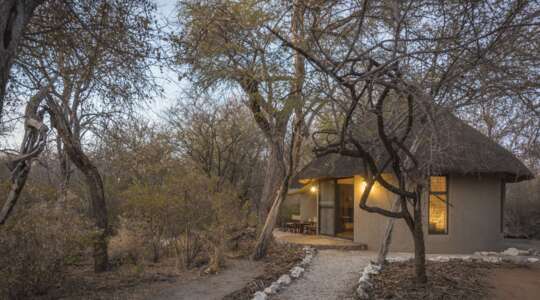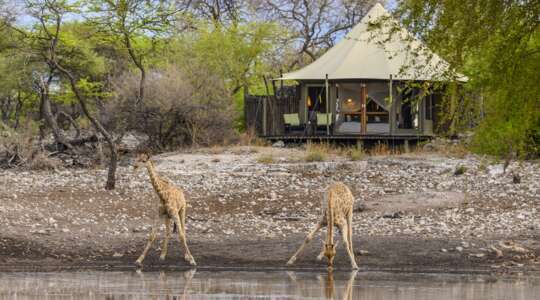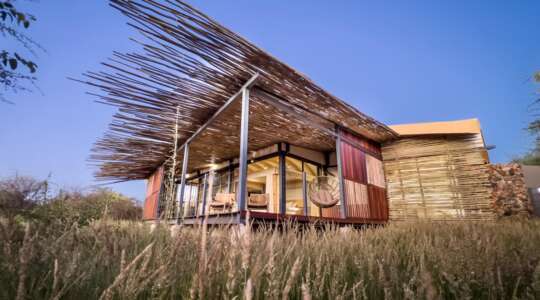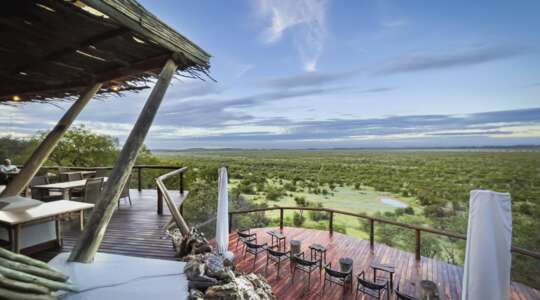Speak to one of our experts now about this offer
Call our Africa experts on0800 294 9706
Available until 2pm
Mokuti Etosha Lodge is a contemporary interpretation of Namibia’s landscape.
Huge windows open up to vast views of the bush. The flat roofs of the communal area resemble the similarly flat expanse of the Etosha Pan while the hotel’s rock hewn walls mimic the cracked rock effect found in the local clay huts, everything playfully juxtaposed.
Twice daily game drives into the bordering Etosha National Park are offered, as well as night drives on the four-and-a-half thousand-hectare reserve where you may see creatures such as giraffes, kudu, leopard, hyena and dik-dik (dwarf antelopes). You can also do morning bush walks accompanied by a member of the local Hai//om bushmen.
Why we love Mokuti Etosha Lodge
-
Mokuti boasts a massive pool, almost Olympic size, where you can swim or sit on a lounger submerged in the water
-
The lodge is perfectly located since they are only 40 metres from the eastern gate
-
On a walk with a local Hai//om bushmen you’re tracking through the land with descendants of the first hunter-gatherers
-
The energetic can enjoy the glass-walled gym and tennis courts
Facilities
In the Dining Room, the buffet is more of a live kitchen with chefs firing up feasts like huge prime ribs fire-grilled in a massive wood-burning oven. At night, the colonial-style bar becomes more of an adult playground with cigars, Champagne and top-shelf whiskies.
There is a dedicated spa with five treatment rooms for massages, manicures and pedicures, as well as a steam room and Jacuzzi.
Morning bush walks are accompanied by a member of the local Hai//om bushmen. The lodge offers twice daily game drives into the bordering Etosha National Park, you're only 40 metres from the eastern gate. Night drives take place on 4,500-hectare reserve.
Children can enjoy the wading pool, play area and educational reptile park.
All Hotels in Etosha

- Etosha
In the local Herero language, Onguma means ‘the place you don’t want to leave’ which perfectly describes Forest Camp.

- Etosha
Onguma Tented Camp offers a true African glamping experience.

- Etosha
Situated on one of Namibia’s largest private reserves, Ongava Anderssons Camp is a luxurious camp with a strong focus on eco-tourism.

- Etosha
Ongava Game Reserve is a 30,000-hectare nature reserve made up of former cattle ranches located next to Etosha National Park.
Sorry, your hotel is no longer available
Please check alternatives
-
{{item.body}}
-
{{item.body}}
Choose a departure date
{{store.searchDuration}} nights
Enter rooms & guests
Checking prices & availability

{{term}}, {{formattedDate}} for {{searchDuration}} nights

_w=24_h=25.png?v=910f6de5506872363a0d58b9f40775d869aae637)
_w=24_h=25.png?v=910f6de5506872363a0d58b9f40775d869aae637)
_w=24_h=25.png?v=910f6de5506872363a0d58b9f40775d869aae637)